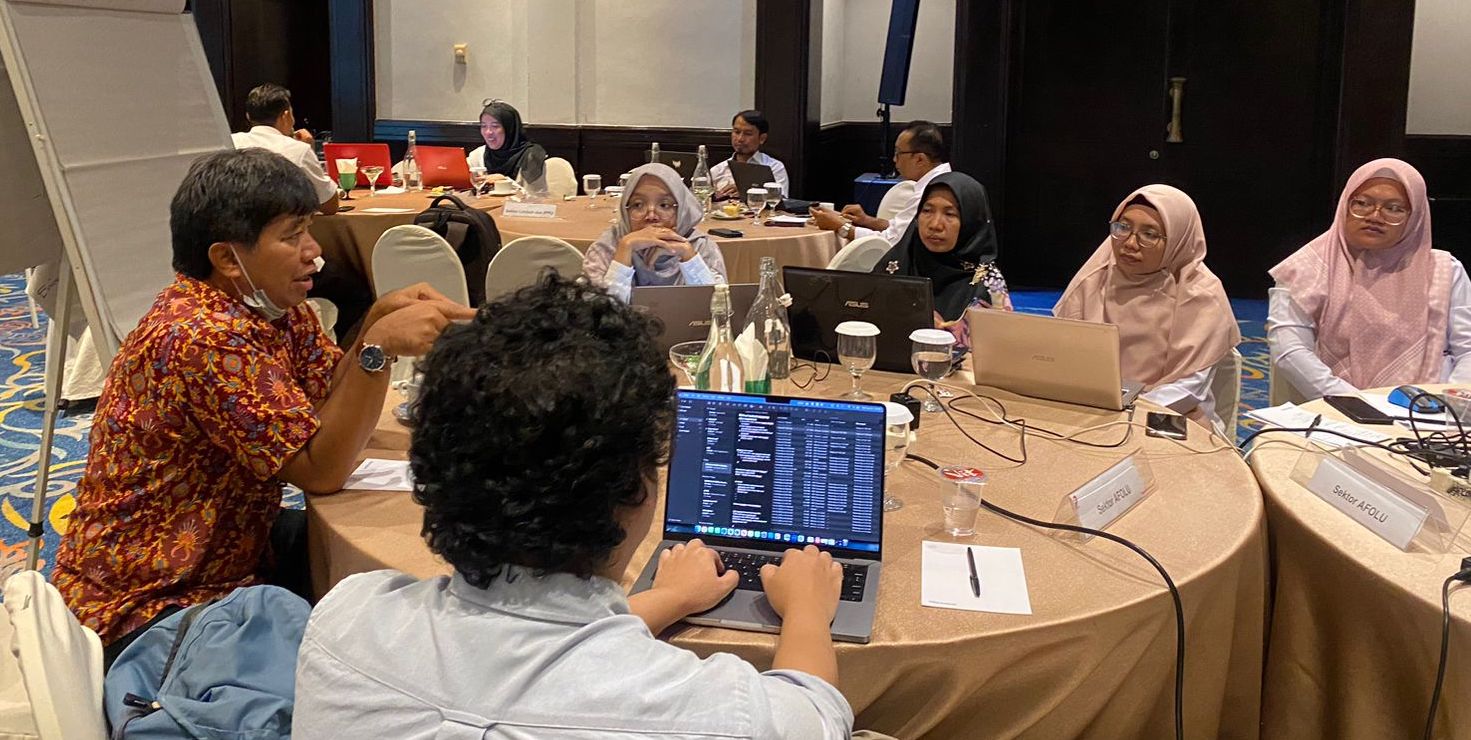CRIC Project facilitated second climate mitigation trainings in Sheraton Lampung Hotel, between 29-30 August 2023. Rein Susinda Hesty, Head of Economy and Natural Resources Division, Development Planning Agency, City of Bandar Lampung, officially opened the two-day event.

CCROM experts: Dr. Muhammad Ardiansyah, Dr. Febrian Hadinata and team accompanied by La Ode Muhammad Abdul Wahid, Senior Researcher from National Research and Innovation Agency attended the training offline and helped working group members to analyze greenhouse gas emission baseline and actual greenhouse gas emission in three sectors: Afolu (agriculture, forest and other land use), waste and energy.
Analising greenhouse gas emission baseline and actual greenhouse gas emission, according to Dr Ardiansyah, is an important step to developing greenhouse gas inventory that details city’s plans to reduce greenhouse gas emissions. “City could find key emissions, the highest sources of greenhouse gas emissions in the city and develop plans to reduce those key emissions,” Ardi said.
Puspa Sari, staff in Economy and Natural Resources Division, Bandar Lampung Development Planning Agency conveyed benefit of CRIC mitigation training that helps her identify the city’s SDG actions and the level of the city’s emission reductions. According to Puspa Sari the city is now preparing voluntary local reviews and collecting local data on climate actions and greenhouse gas emissions that support SDG 13.
Dr. Ardiansyah explained that climate programme tagging and emission reduction actions will be discussed in the final climate mitigation training (M3) for Bandar Lampung. The city had previously completed climate adaptation training last year and was able to identify climate adaptation priorities that will increase city’s resilience in the face of climate change.
CRIC project is committed to organising climate mitigation and adaptation trainings and technical assistance offline in all pilot cities following CCROM feedback to increase CRIC working group (Pokja) members' understanding of climate mitigation and adaptation action plan.
The Sheraton’s training had completed the calculations of GHG inventory and baseline in the energy sector, especially in the transportation sub-sector. The working group members will continue to discuss and analyse GHG inventory and baseline in other sectors like AFOLU, waste, and IPPU (industrial process and production use) to check the availability and validity of the data.
The training found that only waste data has been updated in SIGN SMART, national reporting platform for mitigation. CRIC climate working group members will continue to check and analyse data accuracy in the energy, AFOLU, and IPPU sectors.
CRIC’s field officer, Dwi Ichsan Kurniawan will work with CRIC climate working group members to complete data in waste, energy, and AFOLU sectors. Ichsan will target the data collection process to be finalised before the CRIC project facilitates the next technical assistance for the second mitigation training (TA M2) for Bandar Lampung.
Contributor: Dwi Ichsan Kurniawan, CRIC Field Officer for Cirebon and Bandar Lampung

